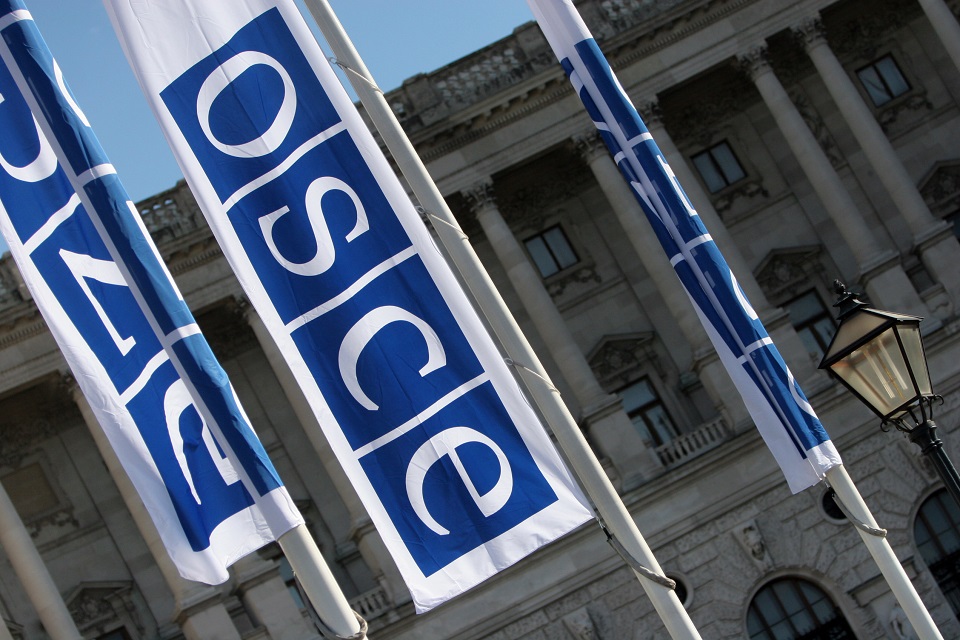OSCE Programme Office in Dushanbe: UK statement
Delivered by Ambassador Neil Bush at the virtual OSCE Permanent Council on 21 May 2020.

We welcome and thank Ambassador Chiveri and his colleagues for his report to the Permanent Council and the work they have undertaken at the Programme Office in Dushanbe over the last year.
Tajikistan is an important partner to the UK and we will continue to support good governance, private sector development and economic reform. This includes through our own DFID Central Asia programme. Good governance is also vital for attracting external investment, and for allowing the private sector to thrive and create wealth and jobs. To this end, I am glad that the Programme Office has provided support to the Working Group on Tax Reform, and on the National Anti-Corruption Strategy. These are important steps in Tajikistan’s path to future prosperity.
I was pleased to read the frequent references in your report to working closely with civil society organisations across a range of programmes. This includes border security, countering violent extremism, democratic participation, anti-corruption, human rights, combatting domestic violence, countering human trafficking, and ensuring freedom of the media.
Combating violent extremism and providing alternatives to extremist narratives is a priority for all of our countries. Respect for human rights, democratic participation, a level playing field for business and entrepreneurs, and opportunities for the young are all different aspects of the response to this complex problem, and we commend the efforts of colleagues from the OSCE mission across all three dimensions as a way to tackle this in partnership with the Government of Tajikistan.
A healthy civil society environment is also an important indicator of the strength and resilience of a democracy, particularly in times of crisis, such as the current COVID-19 pandemic. Allowing the public to understand the nature and consequences of the pandemic – through free and uncensored reporting – is an important pressure valve that can help reduce fear and improve education of measures designed to prevent the spread. Mr Chair, we very much hope that Tajikistan will allow the space for independent media organisations to operate, and remain concerned about reports of the arrest and detention of journalists, and of denials of accreditation for journalists seeking to report in the country. As the OSCE Representative on Freedom of the Media said, “the necessity of a free media is even more vital and more crucial than ever.”
Mr Chair, I would like to highlight a couple of areas of work that I think deserve special attention.
Firstly, on security. I welcome the focus the mission has placed on border management. We believe that for border management to be successful, it should be comprehensive, involving multiple state actors as well as engagement with local communities. This is why we will be putting this on the agenda of an upcoming Security Committee meeting. I was therefore particularly pleased to read about the Office-supported public outreach activities on border management. These have enhanced dialogue and information sharing.
The international accreditation of the one-year blended-learning Postgraduate Diploma by the European Qualifications Framework is clear demonstration of the success of the Border Management Staff College.
The other area of welcome progress is on some third dimension issues. I would like to commend the ambassador on the progress made on support to the rule of law in Tajikistan. This includes anti-torture initiatives that resulted in an increase in the reporting and follow-up of cases. Elsewhere, the provision of free legal and psychosocial counselling to women and men to address domestic violence and to support victims is particularly important at this difficult time. This is as well as wider public awareness on the domestic violence law.
I understand from my colleagues in Dushanbe that the Office has played an important role in coordinating assistance with other donors responding to pressing medical and other needs during the COVID-19 response. I thank the Ambassador and his staff for continuing to work professionally across all three dimensions of the OSCE. For this, and the work of the Office in progressing the OSCE’s mandate in Tajikistan, we thank you.